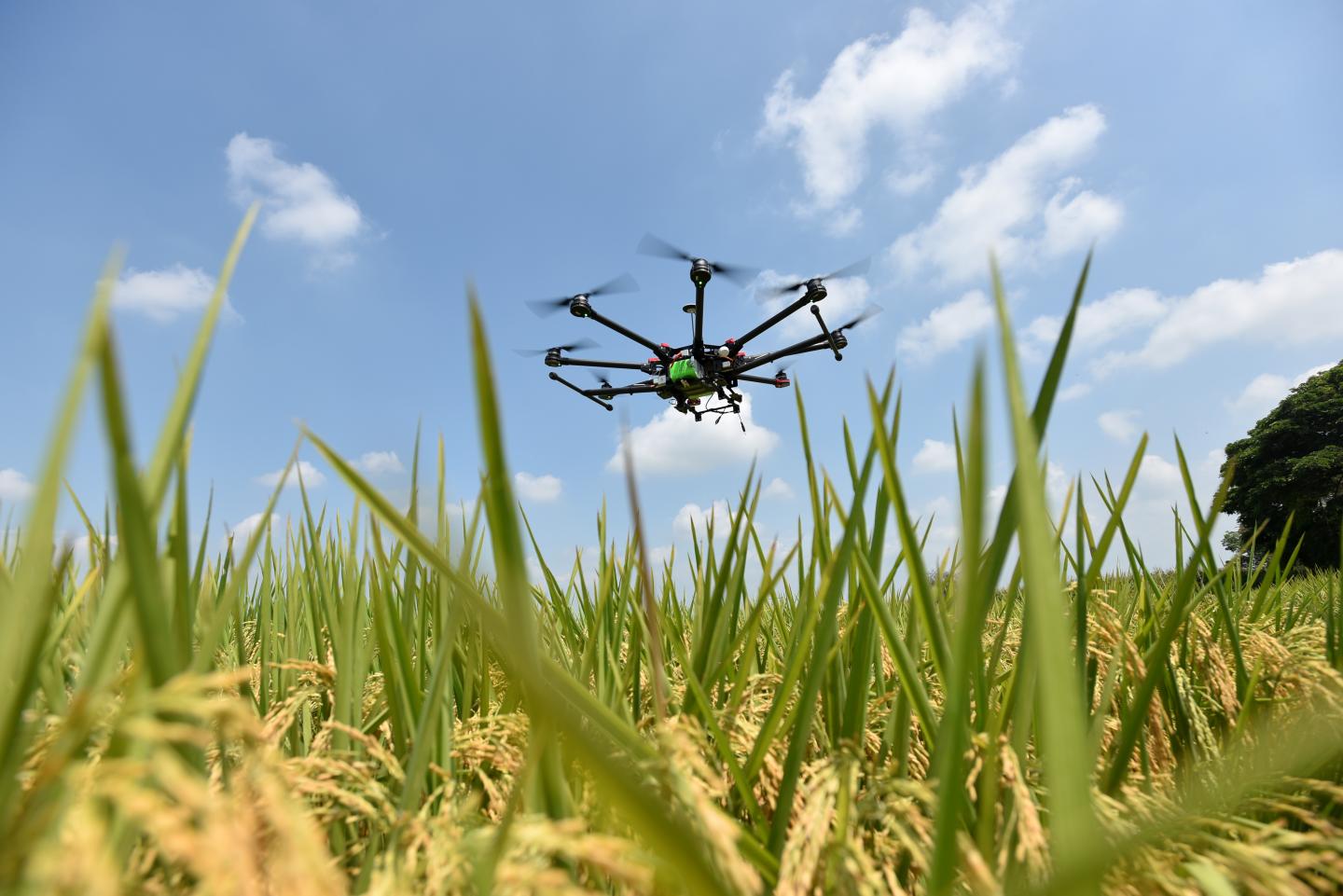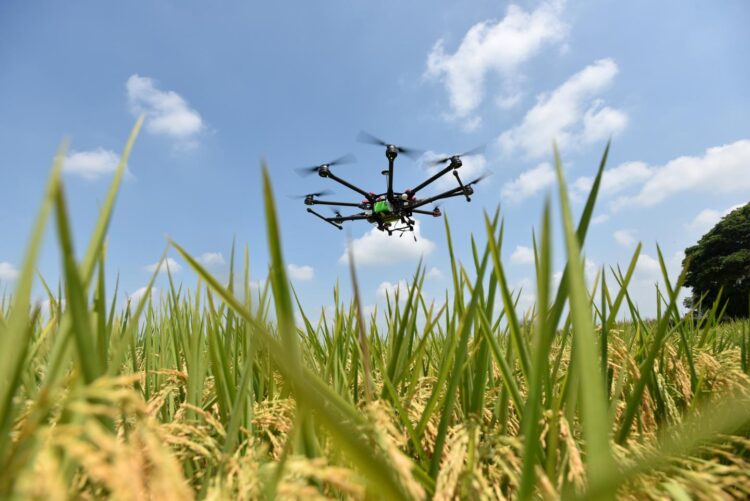A pipeline of new technologies could transform our food systems, ecosystems and human health, but attention to the enabling environment is needed to realize their potential

Credit: CIAT / Neil Palmer
In the next three decades we will need a 30-70 percent increase in food availability to meet the demand from an increasing population. And the global food system will need to change profoundly if it is going to provide humanity with healthy food that is grown sustainably in ways that are not only resilient in the face of climate change but also do not surpass planetary boundaries.
Research to date on the future of our food systems has largely focused on incremental changes possible with existing technologies. But even that research finds that incremental change will not be enough–we must radically transform our food systems.
Prompted by a conversation with the Bill and Melinda Gates Foundation, a new study in Nature Food led by the Commonwealth Scientific and Industrial Research Organisation (CSIRO) and the CGIAR Research Program on Climate Change, Agriculture and Food Security (CCAFS) offers insights into some disruptive, game-changing technologies that could make the difference for both people and the planet, and the social change needed to realize their potential.
“We have come to a point where business-as-usual is not an option,” said Ana Maria Loboguerrero, a co-author of the study and the Climate Action research area director at the Alliance of Bioversity International and CIAT.
Investigating 75 emerging technologies, the study’s authors identify an arsenal of highly promising options, many of them ready or near-ready. Their shortlist comprises technologies that not only contribute to a host of Sustainable Development Goals–climate action, reducing environmental impact, reducing poverty, healthy food–but can also be tailored to a range of institutional and political contexts. The diverse pipeline spans the entire food value chain, from production and processing to consumption and waste management.
Some we are already familiar with, such as artificial meats, 3D printing, drones, “intelligent” materials, and vertical agriculture. Others require a bigger stretch of the imagination: nitrogen-fixing cereals that don’t need fertilizer, spreadable biodegradable polymers that conserve soil moisture, feed for livestock produced from human sewage. While the study focuses on the potential benefits of these technologies, it acknowledges there will be tradeoffs. And not only for the environment and human health–genetic modification of crops is already hotly debated; there is also the risk that unequal access to costly technologies across the globe could increase inequality. Transparency will be key to safeguarding against unintended negative social and environmental impacts, and appropriate policies and regulations are needed to ensure benefits are distributed fairly.
Building the social trust necessary for new technologies to take flight will be the foundation of transformative change, say the authors. “New technologies, especially the more controversial ones, require investment and political support to get off the ground. And for real implementation you need public support. Dialogue is the first step to repairing the trust between science and society–this paper aims to open a space for that dialogue,” said Philip Thornton, CCAFS Flagship Program Leader and a co-author of the study.
“As many tech entrepreneurs see clearly, successful innovation requires a high failure rate. And with a challenge this big and this complex, we will need to attack from all sides. So while many of these technologies could yet fail, investment in their development and testing is crucial to the future of our food systems,” said Mario Herrero, lead author and Chief Research Scientist at CSIRO. “Our research lays out what is needed to create the essential dialogue and the enabling environment that will accelerate the innovation we dearly need.”
###
About CCAFS: The CGIAR Research Program on Climate Change, Agriculture and Food Security (CCAFS) brings together some of the world’s best researchers in agricultural science, development research, climate science and Earth system science, to identify and address the most important interactions, synergies and tradeoffs between climate change, agriculture and food security. https:/
About CSIRO: As Australia’s national science agency, CSIRO pushes the boundaries of what is possible in innovation, science and technology. CSIRO delivers impact nationally and globally through collaboration with industry, governments and communities. CSIRO Agriculture and Food takes an integrated gene to plate approach to improve crop quality and yield, develop innovative food processing technologies, create new value-added foods, and grow our livestock, aquaculture and fishery industries. http://www.
About the Alliance
The Alliance of Bioversity International and the International Center for Tropical Agriculture (CIAT) delivers research-based solutions that harness agricultural biodiversity and sustainably transform food systems to improve people’s lives. Alliance solutions address the global crises of malnutrition, climate change, biodiversity loss, and environmental degradation. The Alliance is part of CGIAR, a global research partnership for a food-secure future. http://www.
Media Contact
Marissa Van Epp
[email protected]
Related Journal Article
http://dx.





